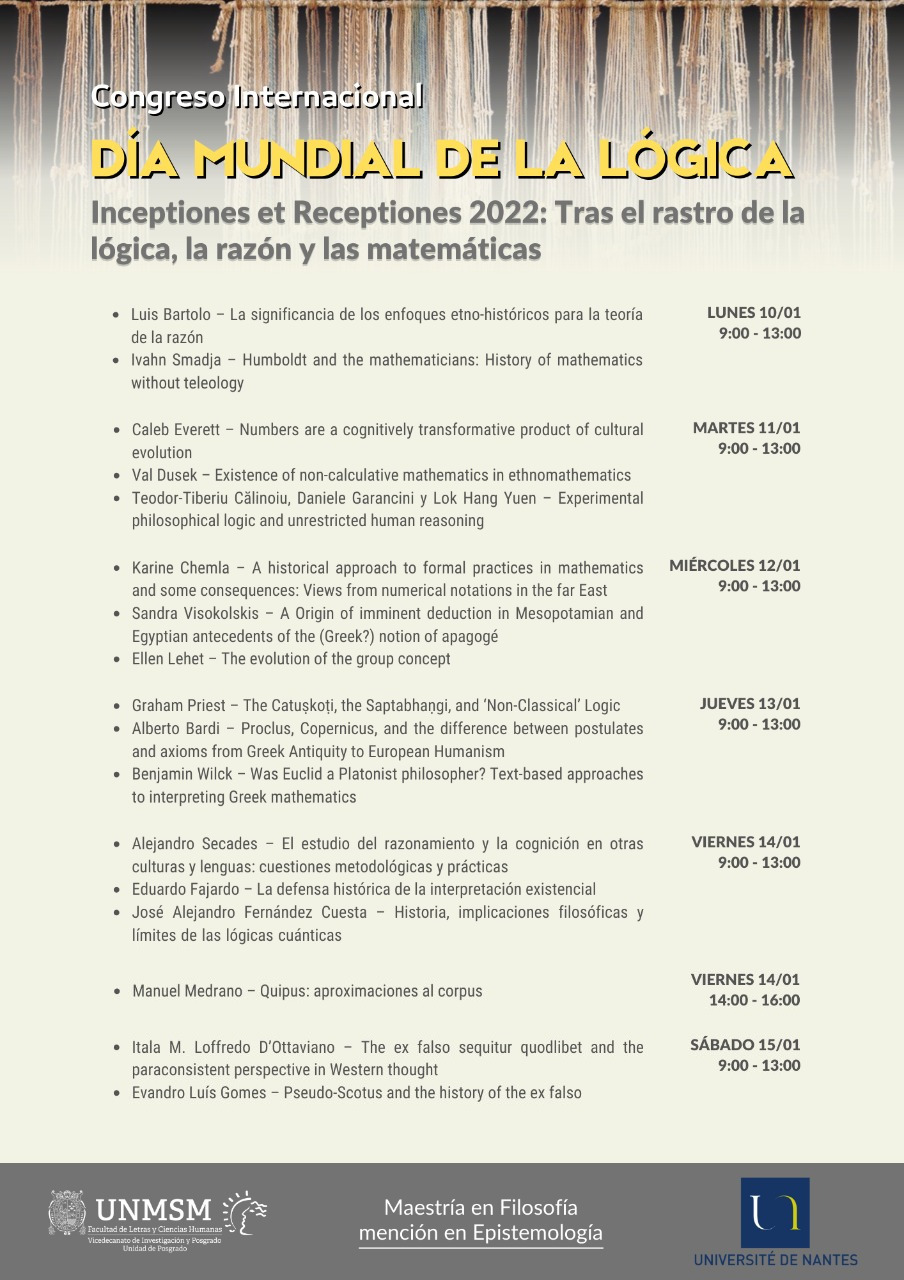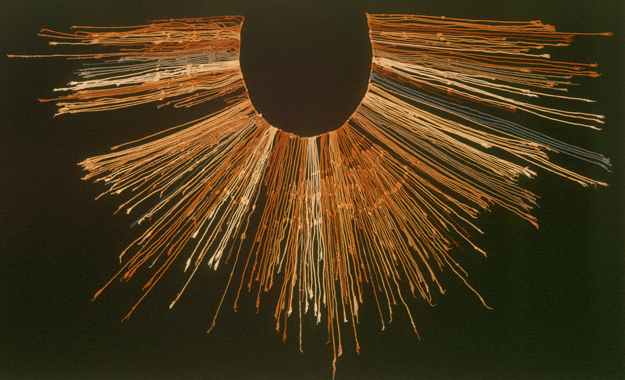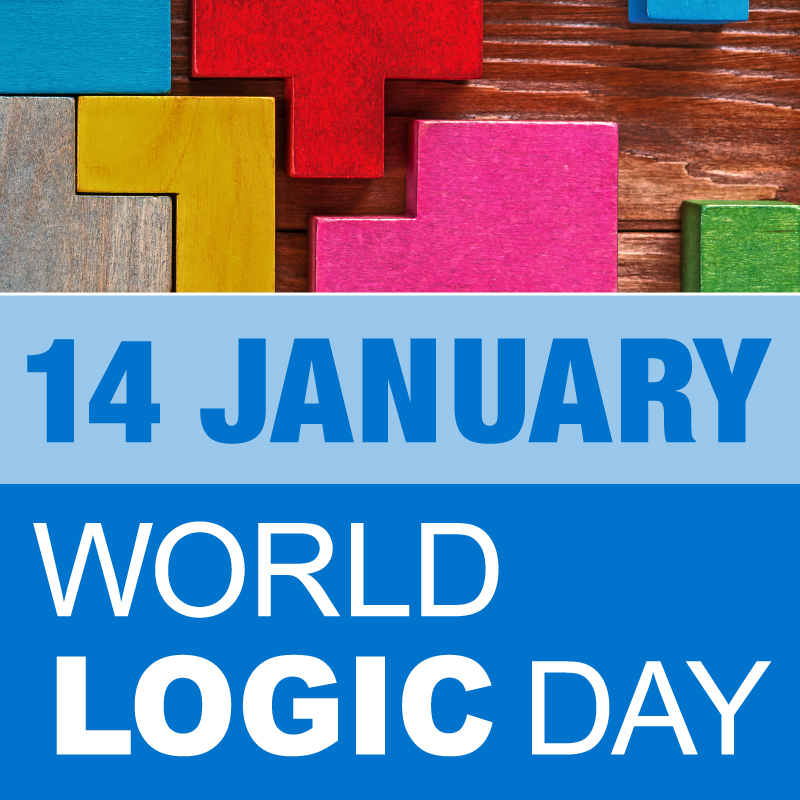WLD/I&R 2022: On the Trace of Logic, Reason, and Math
World Logic Day / Inceptiones et Receptiones 2022
- CERSEU Letras (UNMSM, PE)
- Vicedecanato de Investigación y Posgrado de Letras (UNMSM, PE)
- Maestría en Filosofía con mención Epistemología (UNMSM, PE)
- Centre Atlantique de Philosophie (CAPHI) de la Nantes Université
- Karine Chemla (Paris 7, FR)
- Ítala D’Ottaviano (Unicamp, BR)
- Caleb Everett (UMiami, USA)
- Evandro Luís Gomes (UEM, BR)
- Manuel Medrano (St And, UK)
- Graham Priest (CUNY, USA)
- Alejandro Secades (Filolab, UGR, ES)
- Ivahn Smadja (Univ Nantes, FR)
- Alberto Bardi (THU, CN)
- Luis Felipe Bartolo Alegre (UNMSM, PE)
- Teodor-Tiberiu Călinoiu, Daniele Bruno Garancini, Lok Hang Yuen (LN, HK)
- Val Dusek (UNH, US)
- Eduardo Fajardo (UNSA, PE)
- José Alejandro Fernández Cuesta (URJC/UCM, ES)
- Ellen Lehet (UVU, US)
- Sandra Visokolskis (UNC, AR)
- Benjamin Wilck (HU Berlin, DE)
Online, 10-15 January 2022
- Spanish
- English
Paco Miró Quesada asked once whether the multiplicity of non-classical logics endangered the very existence of ‘reason’, understood as the faculty whereby we can think logically. If there are several—and often mutually incompatible—conceptions of logic, then it means that there are several ways to be logical, and hence that there is more than one reason or rationality. But if this was the case, Miró Quesada says that reason may be arbitrary or relative, which would be very much against what he expects it to be. The problem then becomes whether there are some traits that are common to all proper conceptions of logic and reason or if instead we have to accept that logic and reason are a bit arbitrary or relative, like culture and language are to some extent; especially when studied in a comparative and historical fashion.
In the latter case, the study of the evolution and cultural variation of the concepts, terms, and conceptions of logic, reason, and mathematics may shed light into the very problem of the nature of reason. But even if we disregard these as sources of proper logical and mathematical knowledge, their study could still help us understand the nature of human reasoning.
This event will present ethnological, historical, philological, and similar approaches to the concepts and conceptions related to logic, the theory of reason or rationality, and mathematic.
Monday, 10 January
1. Introduction
9:00-10:00
Ivahn Smadja (Univ Nantes, FR)
10:00-12:00
Tuesday, 11 January
2. Ethno-psychological approaches
9:00-11:00
Numbers are a cognitively transformative product of cultural evolution
Val Dusek (UNH, US)
11:00-12:00
12:00-13:00
Wednesday, 12 January
3. History (1)
9:00-11:00
Sandra Visokolskis (UNC, AR)
11:00-12:00
12:00-13:00
Thursday, 13 January
4. History (2)
9:00-11:00
11:00-12:00
Benjamin Wilck (HU Berlin, DE)
12:00-13:00
Friday, 14 January
5. World Logic Day
9:00-11:00
Eduardo Fajardo (UNSA, PE)
11:00-12:00
12:00-13:00
Conferencia especial
Manuel Medrano (St And, UK)
14:00-16:00
Saturday, 15 January
6. Paraconsistency and history
9:00-11:00
Evandro Luís Gomes (UEM, BR)
11:00-13:00



